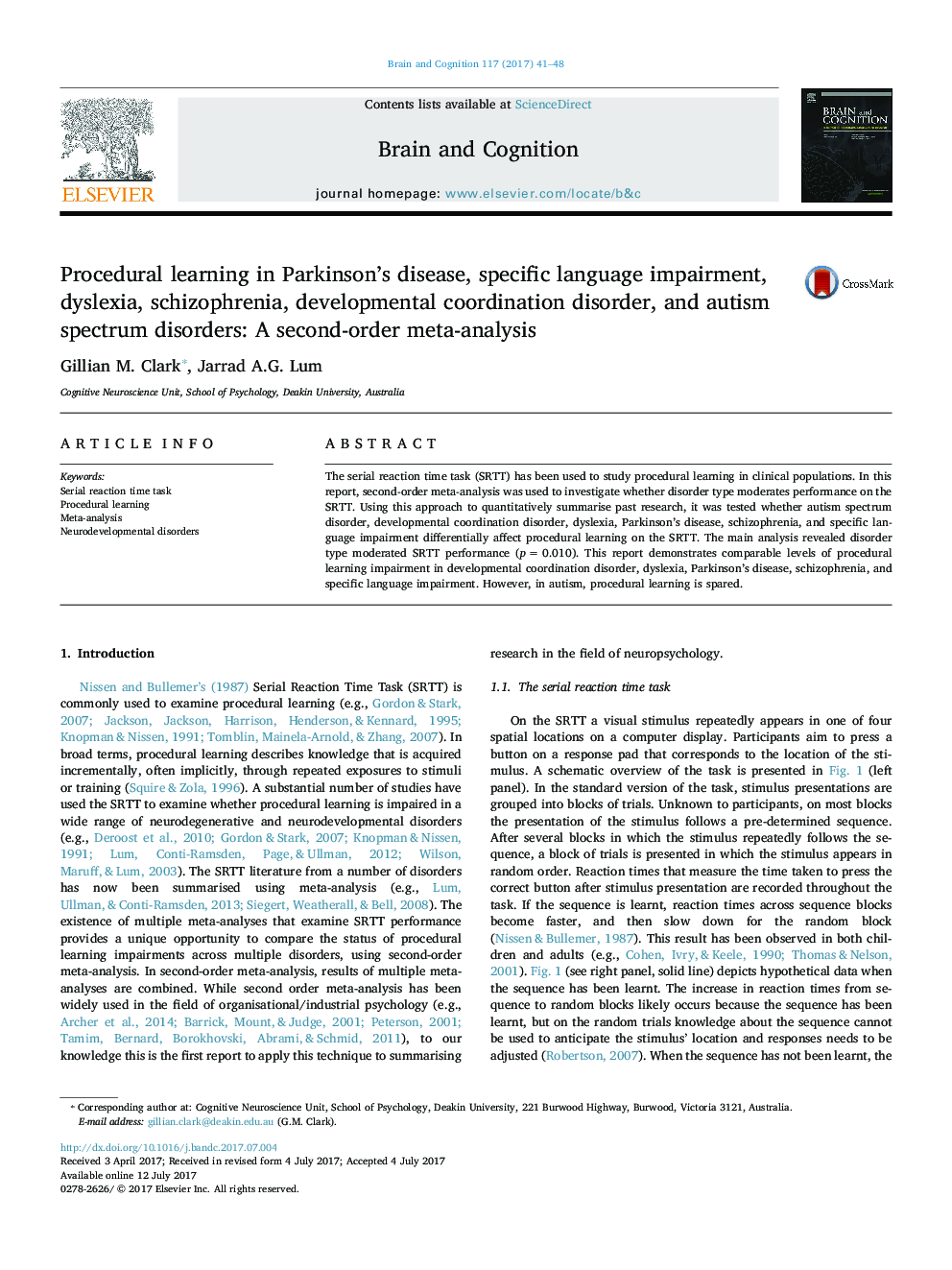| Article ID | Journal | Published Year | Pages | File Type |
|---|---|---|---|---|
| 5041064 | Brain and Cognition | 2017 | 8 Pages |
â¢Second-order meta-analysis revealed comparable SRTT deficits across several disorders.â¢Autism was associated with significantly better SRTT performance than the other studied disorders.â¢Results have implications for understanding the nature of cognitive problems.
The serial reaction time task (SRTT) has been used to study procedural learning in clinical populations. In this report, second-order meta-analysis was used to investigate whether disorder type moderates performance on the SRTT. Using this approach to quantitatively summarise past research, it was tested whether autism spectrum disorder, developmental coordination disorder, dyslexia, Parkinson's disease, schizophrenia, and specific language impairment differentially affect procedural learning on the SRTT. The main analysis revealed disorder type moderated SRTT performance (p = 0.010). This report demonstrates comparable levels of procedural learning impairment in developmental coordination disorder, dyslexia, Parkinson's disease, schizophrenia, and specific language impairment. However, in autism, procedural learning is spared.
